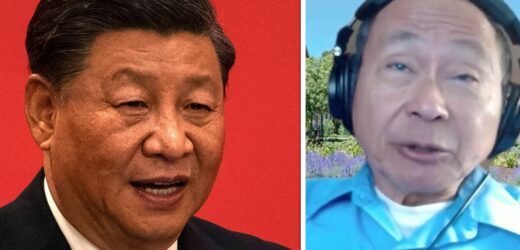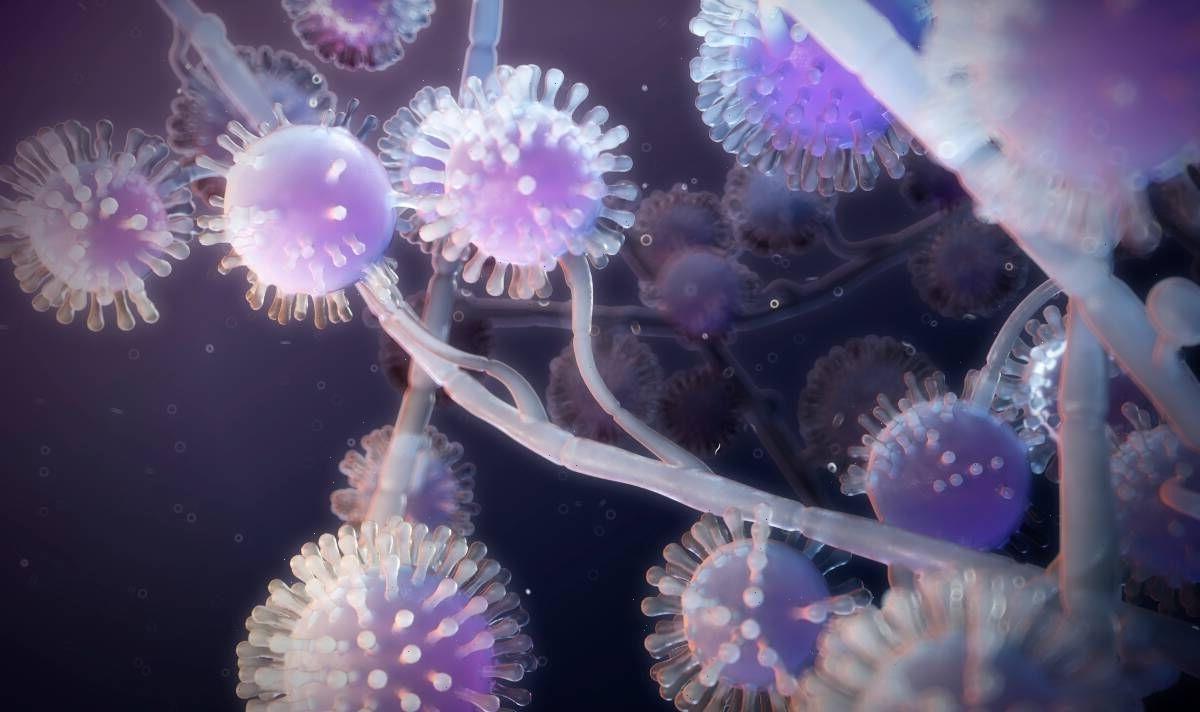China financial modal ‘crumbling’ says Francis Fukuyama
We use your sign-up to provide content in ways you’ve consented to and to improve our understanding of you. This may include adverts from us and 3rd parties based on our understanding. You can unsubscribe at any time. More info
China’s Xi Jinping is facing major economic headwinds, as he has just secured a third term as the head of the country. Leading political scientist Francis Fukuyama warned the growth is not as fast as expected. He added it might be a sign Xi’s economic model is running out of steam.
Francis Fukuyama, Senior Fellow at Stanford’s Freeman Spogli Institute and Director of Ford Dorsey Masters in International Policy told LBC: “I think the big question for geopolitics is actually China’s future itself.
“Because although they’re on the eve of this triumphant 20th Party Congress where they’re going to ratify another term for Xi Jinping, they’ve got a lot of problems.
“Their growth rate is now below the average for East Asia because of the zero-Covid policy and this blown-up in their housing market.
“So, China has a model of sustained economic growth crumbling before our eyes.”


China’s economic model may be close to exhausting its potential to create growth, as the country’s GDP grew well below target in the third quarter of this year.
The GDP expanded 3.9 percent year on year, falling short of China’s full-year target of 5.5 percent, which is already the lowest in three decades.
The slump was reported after China’s President Xi Jinping’s mandate was extended for a third term in a power-grabbing move at the Communist Party’s 20th Congress.
China is wrestling with a property crisis and strict zero-Covid controls and lockdowns, which have successfully contained the spread of the virus but crippled consumer activity.


In a dangerous sign of China’s poor economic performance, Chinese technology giants Alibaba and Baidu fell by over 12 percent in New York. Alibaba’s growth had previously slowed to zero in the April-June quarter because a two-month Covid-19 lockdown in Shanghai slowed China’s economy.
Shares in technology giant Alibaba closed 12.5 percent lower on the New York Stock Exchange, after hitting a 52-week low earlier on Monday. Internet company Baidu lost 12.6 percent, while e-commerce platform Pinduoduo plunged by almost 25 percent.
If China’s economy only grows by a rate of 2.5 percent and the US grows at 1.5 percent with similar rates of inflation, Xi Jinping’s country will not overtake American as the world’s largest economy until 2060, if ever, Ruchi Sharma, chair of the Rockefeller International, told the Financial Times.
During the long-week Congress, President Xi Jinping offered no clear timeline for the easing of Covid-19 restrictions to slow the spread of the virus.
DON’T MISS:
China expert warns Xi ready to ‘surprise’ US with ‘war this year’ [REPORT]
Crude hit by China’s coronavirus lockdown policies and strong dollar [REPORT]
China closes in on Taiwan as Xi purges potential opponents from CCP [REPORT]

But economists and private investors have pinned the blame on Xi’s zero-Covid policy for the economic slowdown.
And the departures of former economic tsar Liu He, central bank governor Yi Gang and top regulator Guo Shuqing from the leadership, who used to be part of China’s economic team, will leave more room for President Xi in the economic decision-making process.
The new second-in-command, Li Qiang, is now on track to become Premier next year and will be in charge of tackling the causes gripping the world’s second-largest economy.
With the zero-Covid policy expected to stay in the short term, wealthy Chinese citizens fearing high taxes, are reportedly leaving the country and moving their capital out of the country.
READ NEXT:
Xi Jinping inching China into ‘pretty deep Cold War’ with US
Xi Jinping’s ‘humiliation’ of party veteran shows ‘dictatorial power’
‘Stalinesque purges have already begun in China’
Xi Jinping only leaving Beijing ‘disastrous’ military option on Taiwan
EU panic as leaders fail to stay united over China
Source: Read Full Article


